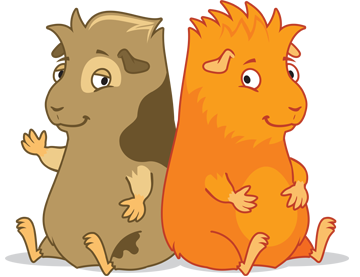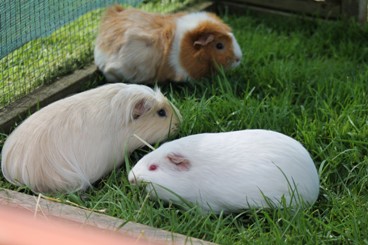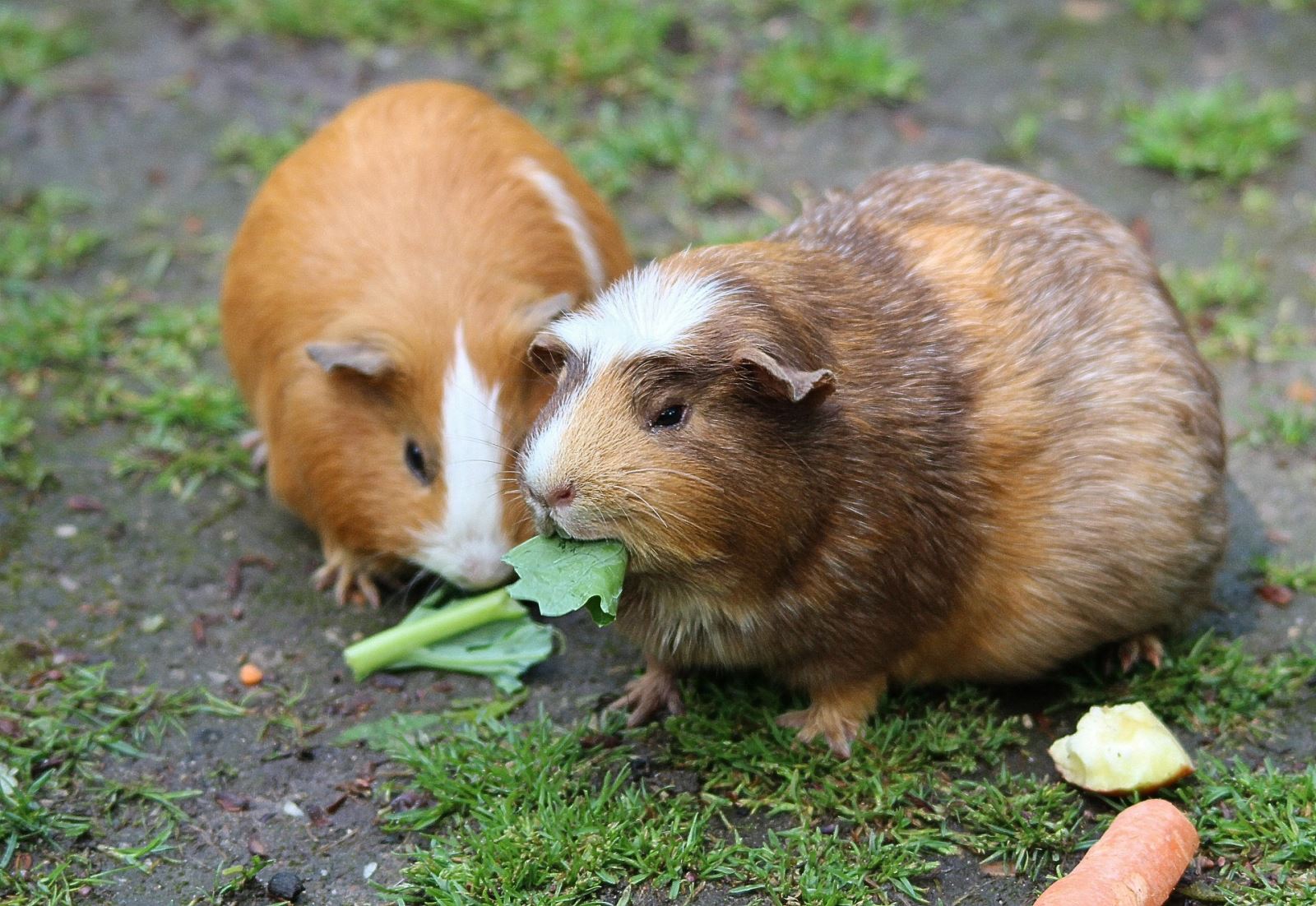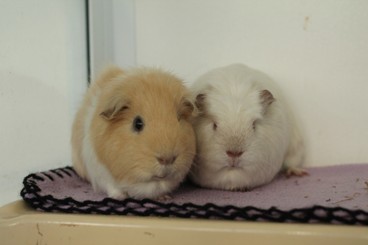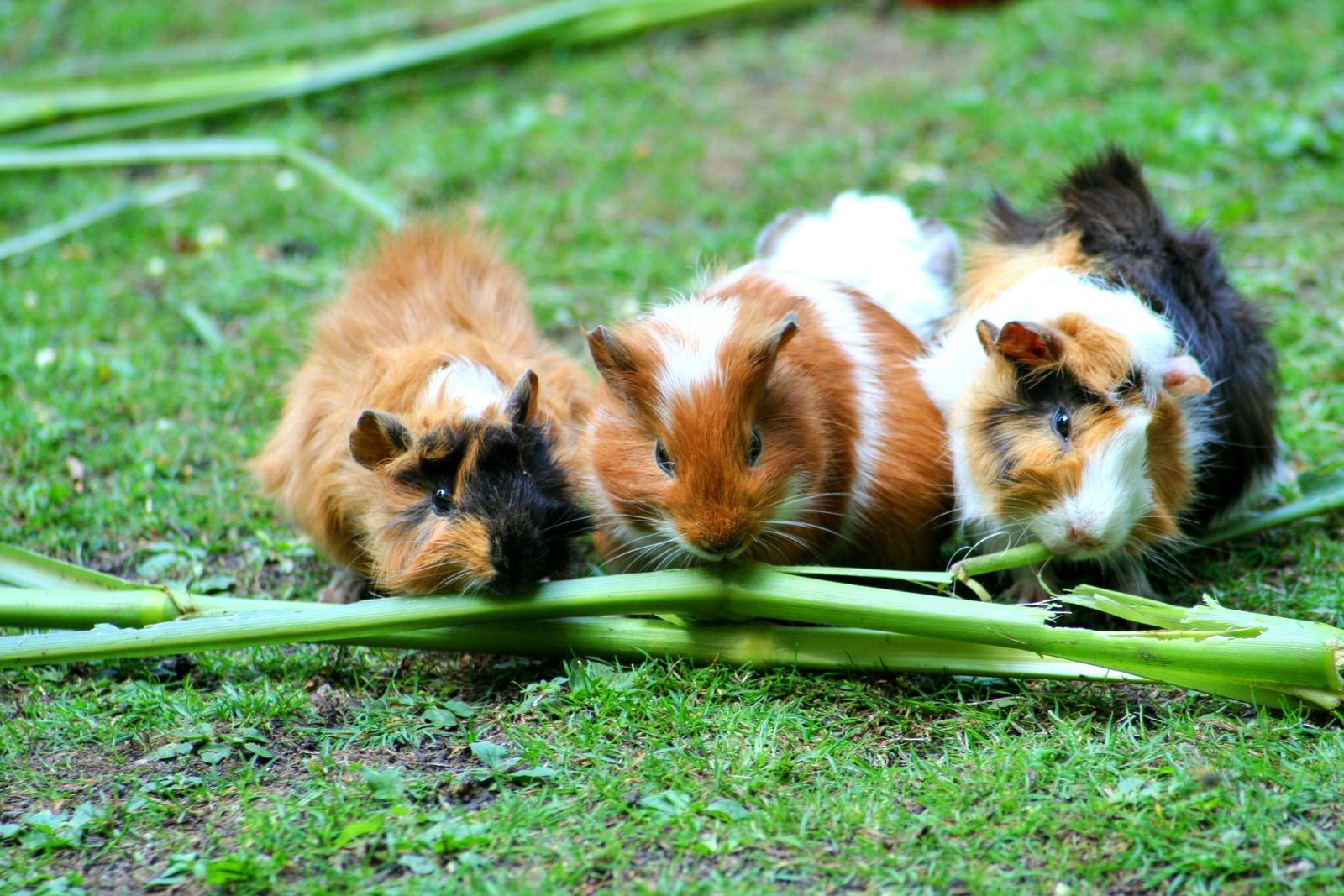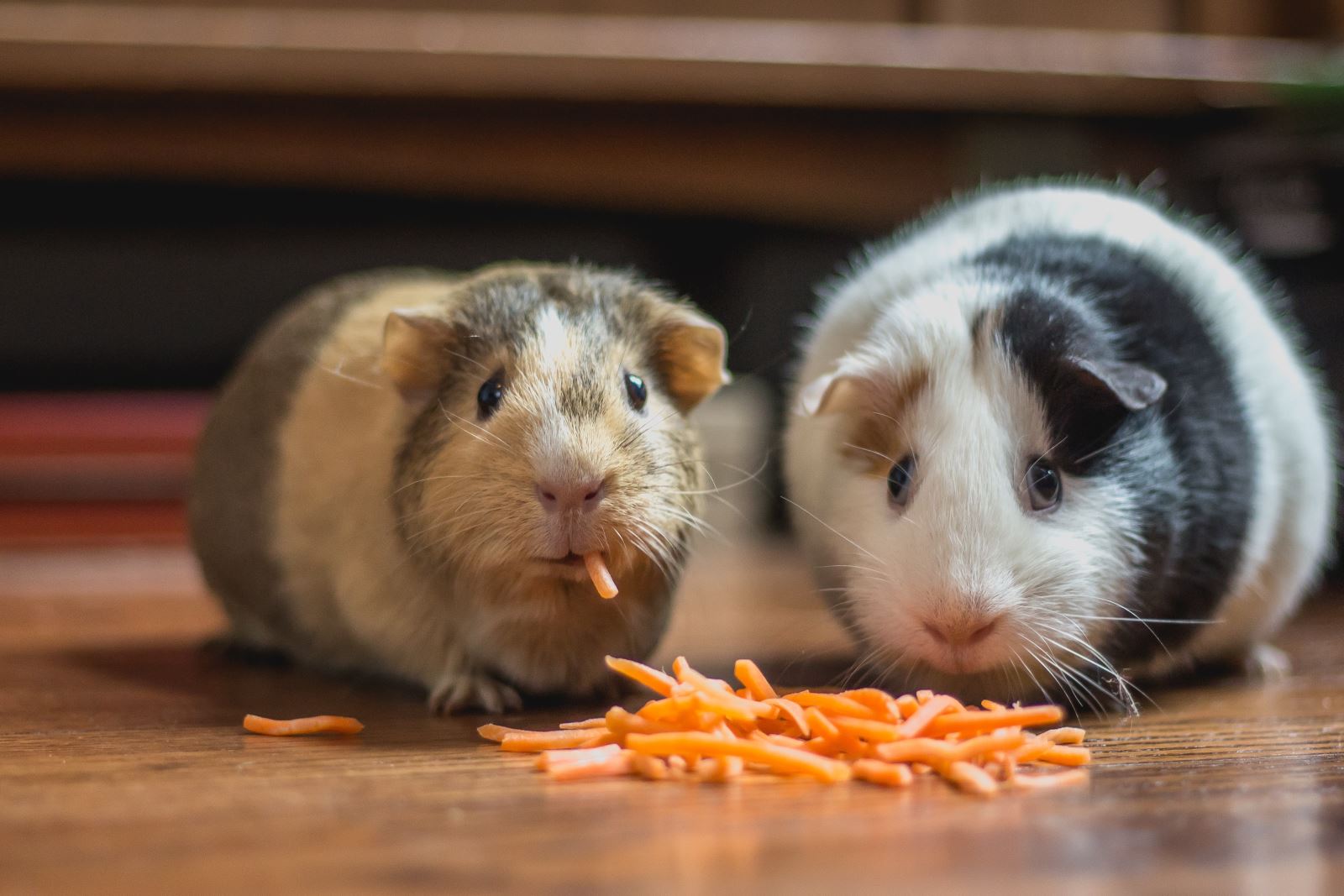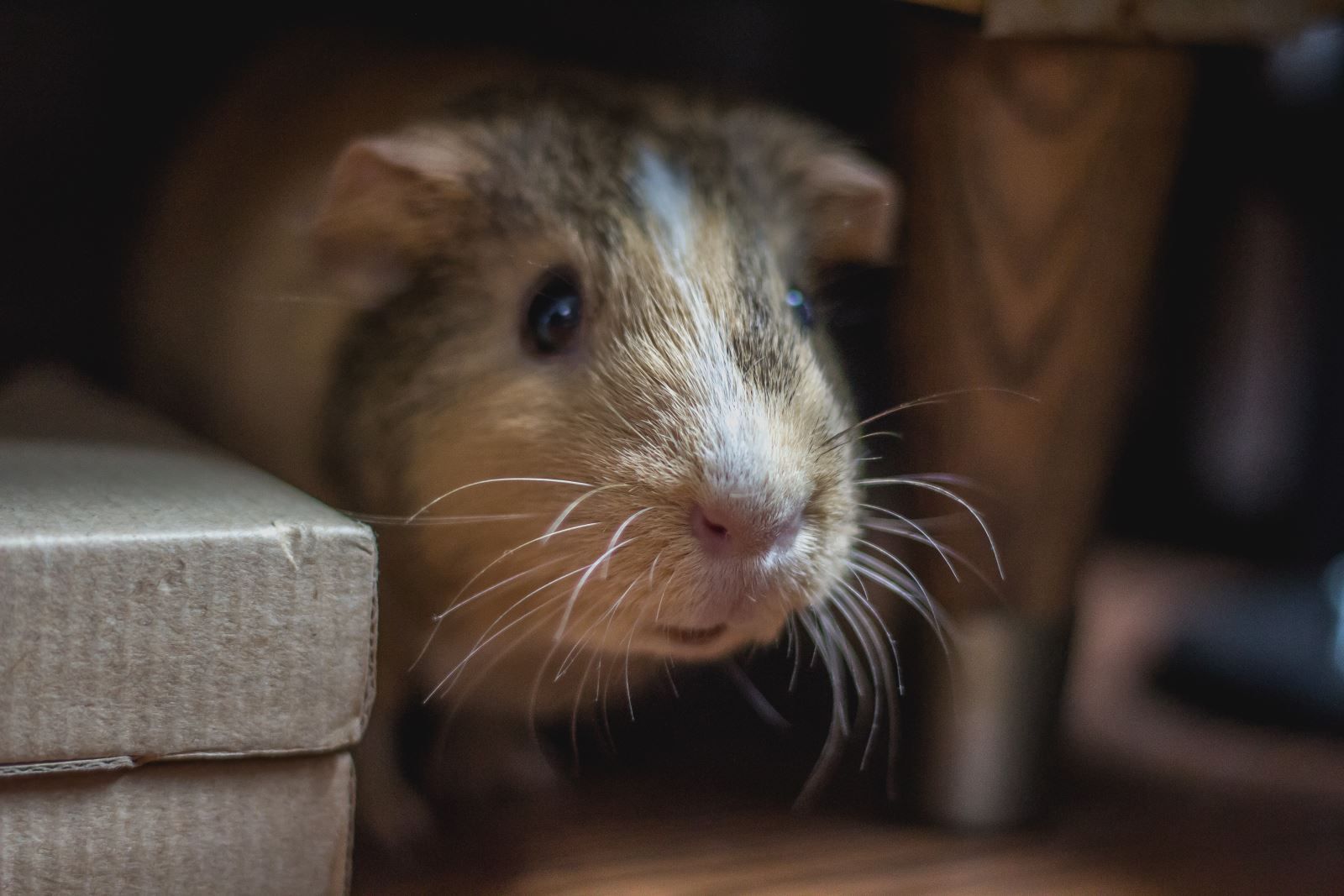 It is normal for a guinea pig to be afraid of you at first, and some guinea pigs, depending on personality, are always a little shy. However, with patience and love, you can almost always make good friends with a guinea pig. The younger they are when you start, the easier it will be to gain their trust.
It is normal for a guinea pig to be afraid of you at first, and some guinea pigs, depending on personality, are always a little shy. However, with patience and love, you can almost always make good friends with a guinea pig. The younger they are when you start, the easier it will be to gain their trust.
The thing to remember is that you are very large and frightening to a guinea pig. Also, being picked up is very scary since guinea pigs aren't really climbing or jumping sorts of animals - they're used to having four feet solidly on the ground.
It's much easier if you start when they're little. The best way to pick one up is to place one hand under the belly and lift, then as soon as they are off the ground, place another hand under the hind legs so they feel secure and supported. Try not to let any of the guinea pig’s legs dangle down as this makes them feel like a predator is holding them in their mouth. They are much more comfortable with all legs secure. Put him or her in your lap - maybe on a towel so you don't have to worry about "accidents" and gently pet them.
Some guinea pigs also like being held standing against the chest, with the nose pointing up towards your face, or cradled in your arms at chest level. Try different positions and you should be able to tell which one(s) your guinea pigs like by how restless they are. This is a good time to give fresh vegetable treats, so your guinea pig finds this a positive experience!
As soon as your guinea pig begins to squeak or become restless, place them gently back down on the ground.
Some guinea pigs never feel comfortable being picked up, especially if they aren't handled a lot when they're little. This doesn't mean that you can't have a good relationship with them though. It just means that you have to relate to them where they are more comfortable, usually on the ground. The best time to do this is during play time when they are let out to run around the room – this should happen every day, so they get enough exercise. Lie down on the floor so you aren't so tall and frightening and offer a piece of vegetable to each of your guinea pigs. While they are eating, reach forward slowly to pet them. If they run away, let them finish their vegetable pieces and try again later.
It may take patience but eventually the shyest of guinea pigs should sit still for you to pet them, and even come over to be petted. The more time you spend on the floor with them, the faster they will get used to you. Also, the less you chase them around to pick them up, the less afraid of you they’ll be. If your guinea pig lives in an enclosure, try to set up some sort of ramp so that they can get back into their cage on their own. If you put fresh vegetables in there, or just rattle around their pellets a little, they'll generally go back into their cage without more forceful urging.
Remember, the more time you spend with your guinea pigs, the faster they'll become friendly with you.
